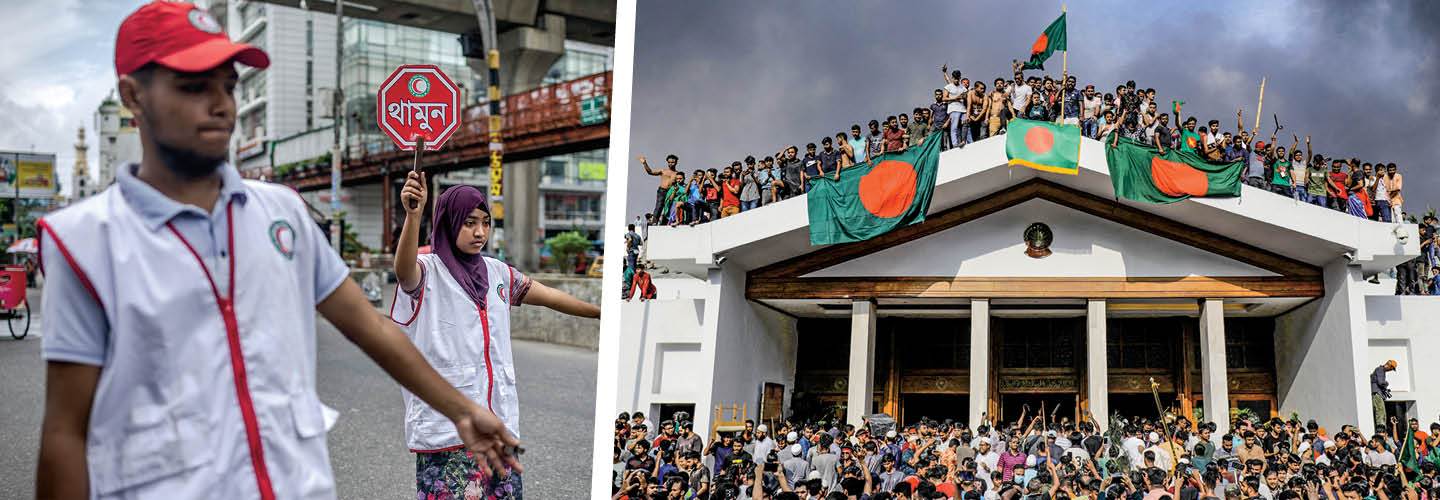Two black vehicles, their hoods adorned with Bangladesh’s national flag, idled late one recent evening in a parking lot at the University of Dhaka, in the nation’s capital.
The cars were waiting for two students, both 26. Just a week before, they were hounded leaders of a youth-driven mass uprising against the country’s seemingly unbreakable prime minister. Now, after her astonishing ouster, they’re leaders of the country’s interim government.
Young people milled around these unlikeliest of government officials, asking questions and taking selfies. On a nearby pillar, spray-painted graffiti declared: “Revolution is not a dinner party.”
On August 5, Bangladesh’s prime minister, Sheikh Hasina, resigned and fled the country after 15 consecutive years in power—forced out by young protesters who said they were fed up with her increasingly authoritarian rule. They had poured into streets around the country since July, frustrated by a lack of opportunity in Bangladesh and demanding the promise of better-paying jobs.
Two black vehicles waited late one night in a parking lot at the University of Dhaka, in Bangladesh’s capital. Their hoods were adorned with the national flag.
The cars were waiting for two students, both 26. Just a week before, the students were wanted leaders of a youth-driven mass uprising against the country’s prime minister. Now, after her astonishing departure, they’re leaders of the country’s interim government.
Young people hung around these unlikely government officials, asking questions and taking selfies. On a nearby pillar, spray-painted graffiti declared: “Revolution is not a dinner party.”
On August 5, Bangladesh’s prime minister, Sheikh Hasina, resigned and fled the country. After serving for 15 consecutive years, she was forced out by young protesters who said they were fed up with her increasingly authoritarian rule. Since July, protesters took to the streets around the country. They were frustrated by a lack of opportunity in Bangladesh and demanded the promise of better-paying jobs.

